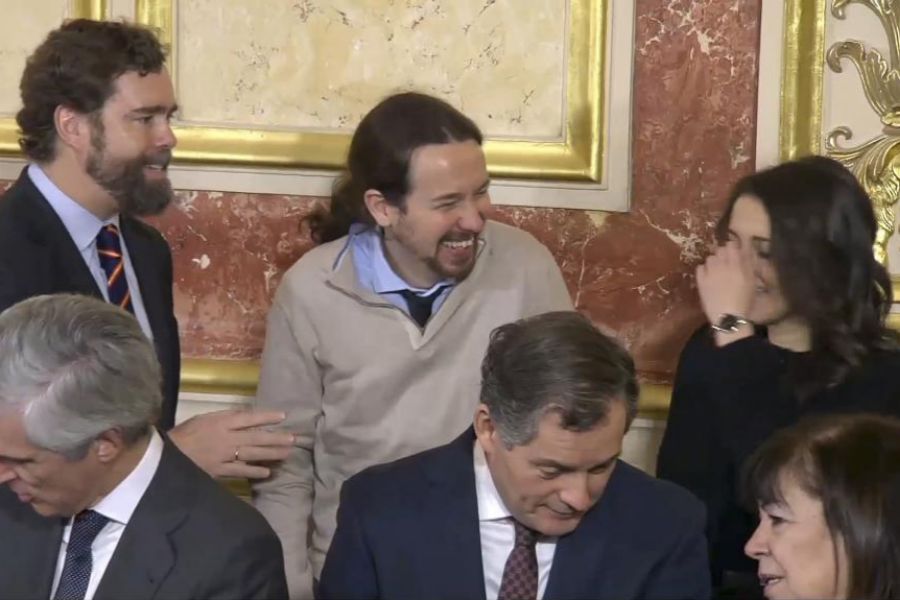The most symbolic image of the anniversary of the Constitution was that of the laughs that two politicians who supposedly hate each other were cast. Iván Espinosa de los Monteros whispered something in Pablo Iglesias's ear and he returned the confidence with his eyes narrowed and the smiley gesture. So nice talk lasted for a few seconds, less than it took to burn on social networks the video that picked it up. Iglesias was forced to justify himself by appealing to "the human condition." I would have preferred him to mention the concord, what Epicurus called "civil friendship." But all right.
In the last chapters of Dignity (Galaxia Gutenberg, 2019), Javier Gomá Lanzón touches on the concept that gives name to the title, that of friendship or that of concord to lead to a defense of the Transition, which is when Spain «late, but well »acquires« coming of age as a modern country ».
The philosopher says that the generation that lived the death of the dictator, «with the counterexample of the Civil War in mind, rejected the maximalist principle fiat iustitia, pereat mundus, opted for that new imperfect Spain that was born then and thus put the concord to the strict justice. The renunciation of political perfectionism denotes a treasure of experience accumulated by the group, wise acceptance of the principle of reality, imagination to put oneself in the place of the other without demonizing it and a pragmatic disposition to the pact ».
The imperfect but empathic scene of Espinosa e Iglesias surprised both because they usually refer to each other as if they were at war. The leader of Podemos declares the "anti-fascist alert" when Vox obtains good results and the spokesman of this party qualifies the purple formation of "Marxist partner of the PSOE", "chavista organization" or leader of the "procrete dictatorship".
Both leaders are not so different. Politically, these are two populist leaders who explore the edges of the Constitution, each by its corner. If one challenges the State model because of its monarchical condition and defends the non-existent right of self-determination, the other makes it questioned the autonomic system and raising limits to the rights and freedoms of some neighbors for reasons of origin.
Personally, they are two large parents, joined by couples with strong political backgrounds and residents in exclusive environments in Madrid or the surrounding area. It would have been plausible that they were commenting on a gardener about the gardener had it not been for the entry into the plane, with a similar accomplice, of Inés Arrimadas .
Iván and Pablo polarize reality and attract their competitors to the extremes, and Inés has taken the helm of Citizens with the purpose of exerting their strength towards the center. A relative force for the decline in parliamentary representation, but active and visible, which distinguishes it from Pablo Casado . The leader of the PP has sat on the shore to wait for the tide to return the wreck of the Government that Pedro Sánchez intends to form. And the Jerez leader fears that there is nothing left to pick up with the country transformed into a plot.
Albert Rivera paid a bill that was too expensive to confine Citizens in immobility and renounce its centralizing utility. Ines does not want to be a hinge, but she is decisive. While it is known whether he succeeds or not, welcome be those laughs with Ivan and Paul.
According to the criteria of The Trust Project
Know more- Citizens
- Spain
- PSOE
- Pablo Casado
- Pablo Iglesias
- Pedro Sanchez
- We can
- Vox
- PP
- Madrid
- Iván Espinosa de los Monteros
- Inés Arrimadas
- Albert rivera
- President's Investiture
- General elections
Considering cold after Sánchez
AnalysisBest without testosterone
Tribune Citizens and the tragedy of the center

